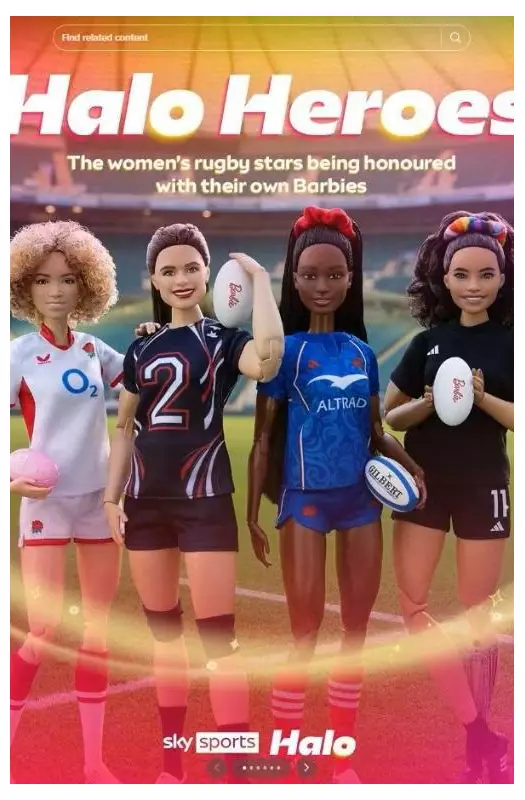
In a spectacular social media misfire, Sky Sports' well-intentioned attempt to champion women's sport on TikTok backfired spectacularly, leading to the swift demise of its new 'Halo' channel after just three days of operation.
A 'Lil Sis' Misfire and a Barbie Blunder
The British subscription sports platform launched the female-centric TikTok account, Halo, in late November 2025 with the stated goal of promoting women's sport. However, the broadcaster placed itself on shaky ground from the outset by describing the new channel as the "lil sis" of Sky Sports, a label that was widely criticised as condescending.
The situation deteriorated rapidly with the content strategy. Posts deployed hot pink text in a clumsy attempt to leverage Barbie-mania, a trend considered several years out-of-date. In a now-infamous post, the account depicted women's rugby stars as Barbie dolls, framing athletic prowess around aesthetic beauty rather than physical performance.
Contradicting its initial proclamation that Halo was "about ALL sports and championing female athletes", five of the channel's first eleven videos featured male sports stars. One particularly baffling post showed a video of Manchester City Men’s striker, Erling Haaland, with the caption: "How the matcha + hot girl walk combo hits".
Swift Backlash and Eventual Capitulation
The online response was immediate and fierce. The content, which treated its intended young, female audience as if they were incapable of understanding the nuances of men's sport, drew criticism from female athletes, female sports media, and a multitude of users across the platform.
Faced with an unwinnable battle, Sky Sports initially tried to defend the account but soon capitulated. The company issued a statement acknowledging the failure: "We’ve listened. We didn’t get it right. As a result we’re stopping all activity on this account. We’re learning and remain as committed as ever to creating spaces where fans feel included and inspired."
A Lost Opportunity in a Booming Market
This episode represents a significant setback, but not because the core idea was flawed. The popularity of women's sport on social media is growing exponentially. According to Forbes magazine, the rate of growth of commercial sponsorship of women’s sport is outstripping that of men’s professional sporting leagues.
Promoting women's sport is not just smart business; it delivers immense social and cultural benefits. Rather than abandoning the effort entirely, the true path forward would be for Sky Sports to accept its mistake, consult extensively with actual women on what content they want to see, and have another, more informed crack at building a genuine community for women's sports fans.






